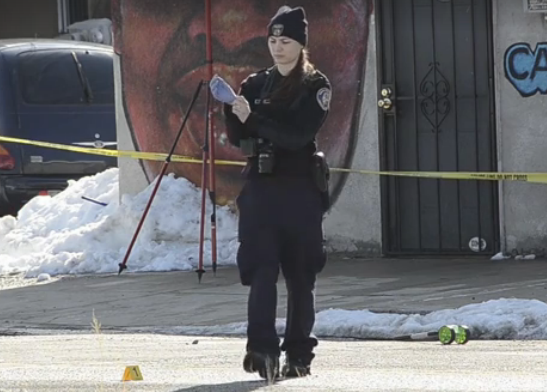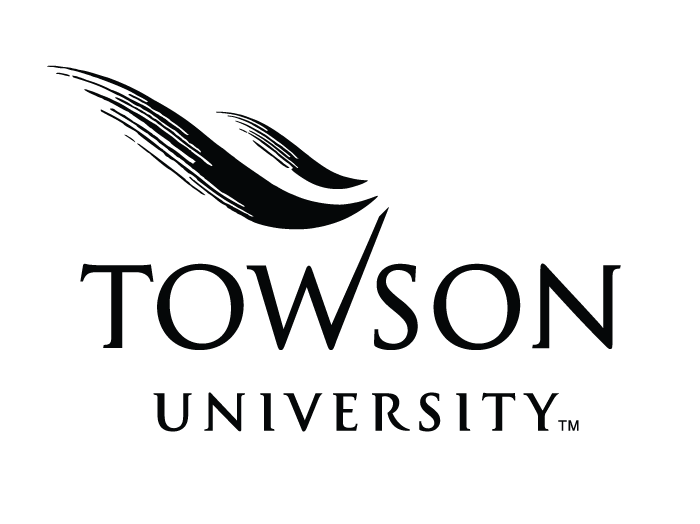What if you could use your analytics skills and attention to detail to help a grieving family gain closure? Or put a bank robber behind bars?
Freeway chases and dramatic courtroom admissions grab all the headlines, but the forensic scientists are the ones who point the police and lawyers in the right direction. Towson University’s master’s degree in forensics science prepares students for careers as forensic scientists in business, industry and government.
Find out about the forensics science master’s degree program at Towson University
One such individual is Zoe Krohn ’14. The Aruba native earned a bachelor’s in chemistry from George Washington University in 2012 but had limited work experience. The only background she had in criminology were a few graduate-level forensics classes she took at GW.
“When I graduated with my bachelor’s degree, I did not feel prepared to enter the workforce nor sufficiently qualified for most positions related to my degree,” Krohn said. “As an international student I knew that I would either have to find a job within three months of graduating or continue my education in order to remain in the United States. Furthermore, I felt that my chances of obtaining a job would be better if I had a master’s degree.”
Krohn decided to pursue her master’s in forensic science at Towson.
Learning that works
“I wanted to enroll in a forensic science program that was recognized, accredited and that would provide me with lots of hands-on experience and  opportunities to network with professionals in the field,” she continued. “Towson’s program offered all of these. Additionally, the program was more affordable than other accredited programs on the East Coast.”
opportunities to network with professionals in the field,” she continued. “Towson’s program offered all of these. Additionally, the program was more affordable than other accredited programs on the East Coast.”
The program is fully accredited by The Forensic Science Education Programs Accreditation Commission, which is sponsored by the American Academy of Forensic Sciences (AAFS). As a professional science master’s degree, the program enables students to pursue advanced training while developing valuable workplace skills.
Ideal for both the full-time student and the working professional, the program offers a wide variety of late-afternoon and evening classes as well as unique learning opportunities beyond the traditional classroom experience: seminars, internships, research projects and a master’s thesis.
Degree requirements
All students must complete 37 credit hours of graduate work, with no more than three 500-level courses. Students must take 19 credit hours of core courses and 12 credit hours of electives in addition to the capstone courses. The degree requires students to fulfill a capstone requirement: either a thesis or a research project.
Krohn’s research project was titled “Elemental analysis of blue ballpoint pen inks on paper by laser ablation inductively coupled plasma time of flight mass spectrometry.” Her research mentor was Ellen Hondrogiannis, Ph.D., who Krohn said was “always ready to help and guide me in the right direction.”
Krohn particularly enjoyed two of her classes; the first was an elective called Death Analysis in Forensic Science (FRSC 660) taught by Professor Patricia Aronica-Pollack, a forensic pathologist at the Office of the Chief Medical Examiner (OCME) in Baltimore. The other class was called Instrumental Analysis.
“[Death Analysis in Forensic Science] was unlike any class I had ever taken,” she enthused. “It was a nice change of pace from instrumentation, DNA analysis and statistics yet still extremely applicable to what I would encounter in professional life.”
“Even though the title may sound utterly boring, Professor Hondrogiannis was extremely knowledgeable about the material and taught in such a way that engaged the entire class,” Krohn continued. “Furthermore, the material was sometimes challenging (in a good way) and provided me with a deeper understanding of how instruments worked that are used daily by forensic scientists. In almost all of my job interviews I was asked to explain how a gas chromatography mass spectrometer (GC-MS) worked, which I was able to do in a technical way as well as in layman terms because of this class.”
The benefit of a master’s degree
Krohn’s performance in her courses and on her job interviews landed her a position as a crime scene technician with the Baltimore City Police Department before she received her diploma in May 2014.
“Even though many jobs in forensic science – especially entry-level ones – don’t require an master’s, the fact that one has an masters’ automatically provides an edge in the job qualification process,” Krohn stated. “In the past, having an undergraduate degree was sufficient, but now people with bachelor’s degrees are so ubiquitous that having an master’s is necessary if you want to set yourself apart from the rest.
“Employers also look at your ability to eventually advance to a supervisory/management position, which requires more education than simply a bachelor’s degree. If an applicant already has a master’s degree, employers not only know that advancement is possible but also that the applicant is capable. In my case, out of the 10 applicants hired in the position, nine had a master’s degree or were in the process of obtaining one!”
A forensics master’s degree from Towson University has given graduates the skills and real-world experience to find jobs in education, healthcare, private businesses, government and law enforcement.
“The program taught me many things, including how to properly recover and preserve evidence, how to identify probative evidence and the importance of preserving the chain of custody,” Krohn said. “Examples were brought up in class in which a forensic scientist was unethical or mistakes were made in the collection or preservation methods, thereby negatively influencing a case.
“Historical legal cases that shaped the rules of evidence were discussed as well, which gave me a deeper understanding of how forensic science and the law tie together. All of this knowledge I apply today as a crime lab technician for the Baltimore Police Department. Furthermore, the knowledge I gained from classes such as instrumental analysis, serology and DNA analysis will be extremely helpful in the future when I want to do analytical labwork for the crime lab.”

